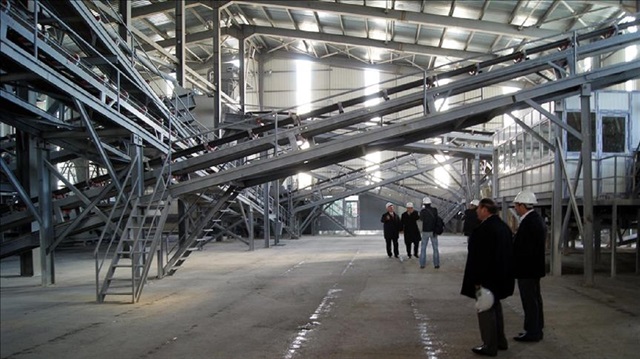
US penalties to include 10 percent tariff on aluminum imports, 25 percent on steel
The U.S. announced Thursday it will impose sweeping tariffs on steel and aluminum imports coming from the European Union, Canada and Mexico after the Trump administration failed to secure concessions from close trading partners.
Commerce Secretary Wilbur Ross told reporters on a conference call that the U.S. would begin instituting a 10 percent aluminum tariff on imports and a 25 percent tariff on steel beginning Friday.
Canada, Mexico and the EU had initially been granted temporary exemptions to the import penalties after President Donald Trump announced them in March. The exemptions were set to expire at the end of the week.
The exemptions were made in the hopes of gaining other economic benefits for the U.S., but Ross reportedly said not enough progress had been made to warrant an extension.
The White House later said talks would continue even as the penalties loomed for the U.S.'s closest allies.
During an interview with the CNBC television network, Ross sought to downplay the effects of the import duties, saying: "If the market, to the degree it was surprised, it will have to adjust to that. But markets adjust to facts."
But beyond markets, the economic penalties are likely to further rattle relations with some of the U.S.'s closest allies, some of whom are already facing the prospects of U.S. sanctions for seeking to abide by an agreement the U.S. and world powers brokered with Iran but which Trump pulled the U.S. out of despite stiff opposition from Europe.
When Trump initially made the decision to institute steel and aluminum tariffs, he did so under the pretext of national security. But the rationale has been balked at by the U.S.'s closest security partners in Europe and Canada.
Canada quickly responded by slapping duties on CA$16.6 billion of products imported from the United States while slamming the U.S. action as "totally unacceptable".
Canadian Prime Minister Justin Trudeau said the national security argument used by Trump to enact the duties is “inconceivable”.
Foreign Affairs Minister Chrystia Freeland, who stood beside Trudeau at a news conference in Ottawa, said Canada would enforce dollar-for-dollar “countermeasures” on U.S. imports with tariffs varying from 10 to 25 percent on a list of products beginning July 1. Products will include steel and aluminum -- Canada is the biggest supplier of the two metals to the U.S. market -- as well as mundane items like playing cards and felt pens.
"This is the strongest trade action Canada has taken in the post-war era. This is a very strong response, it is a proportionate response, it is perfectly reciprocal. This is a very strong Canadian action in response to a very bad U.S. decision," Freeland told reporters.
The full list will be put online and Canadians will have 15 days to study and suggest changes. Freeland said Canada has gone to great lengths to ensure the U.S. products to be subjected to tariffs are readily available from other countries so that the price of the goods to Canadians will not be increased.
According to the Office of the United States Trade Representative, Canada was the second-largest trading partner of the U.S. in 2017, with $582.4 billion in two-way trade, just a bit behind China.
The United States does not produce enough steel and aluminum to satisfy its domestic needs for everything from airplanes to beer cans. In 2017, Canada supplied $7.2 billion of aluminum and $4.3 billion of steel to the United States.
- 'Bad day' for trade
"This is protectionism, pure and simple," Juncker said. "It’s a bad day for world trade.
"The U.S. leaves us no choice but to proceed with a WTO dispute settlement case and the imposition of additional duties on a number of U.S. imports."
French Finance Minister Bruno Le Maire went a step further, warning the EU would have no choice but to "enter a trade war" with Washington over the matter.
"Our U.S. friends must know that if they were to take aggressive actions against Europe, Europe would not be without reaction," he warned.
The European Parliament also condemned the U.S. decision, calling on the EU to react "immediately with a firm but proportionate" response.
"I am very disappointed with the U.S. decision to impose duties on steel and aluminum imports from Europe. These are unilateral and unjustified measures that will do serious harm to workers, industry and consumers on both sides of the Atlantic," EP head Antonio Tajani said in a statement.
Germany also slammed Trump’s decision and argued that the tariffs were “illegal” and could not be justified with “national security” concerns.
“This measure rather bears the danger of an escalation spiral, which would harm everyone,” Chancellor Angela Merkel’s spokesman Steffen Seibert said.
German Foreign Minister Heiko Maas said the European Union member states will retaliate with a firm joint response.
*Barry Ellsworth contributed to this story from Canada, Ayhan Simsek contributed from Berlin, Germany, Burcu Arik contributed from Istanbul, Turkey.



